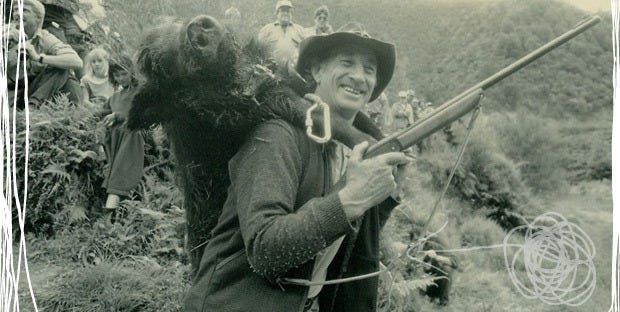Reading Crumpy
I didn’t know he was an author, nor that he was any sort of “real” bushman. I thought he was an actor, a guy from the TV, those ads. That’s how I first knew Barry Crump. That’s who he was to me. And my dad had a job selling Toyotas so he had met Barry Crump. They had attended functions where “Crumpy” as the whole of the country knew him – a Kiwi folk he…
Keep reading with a 7-day free trial
Subscribe to Sounds Good! to keep reading this post and get 7 days of free access to the full post archives.


